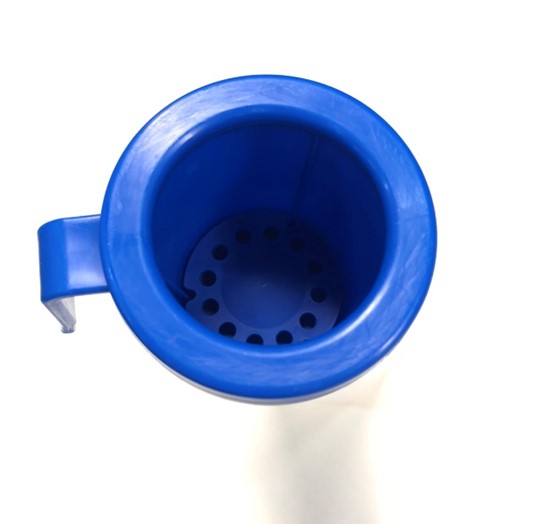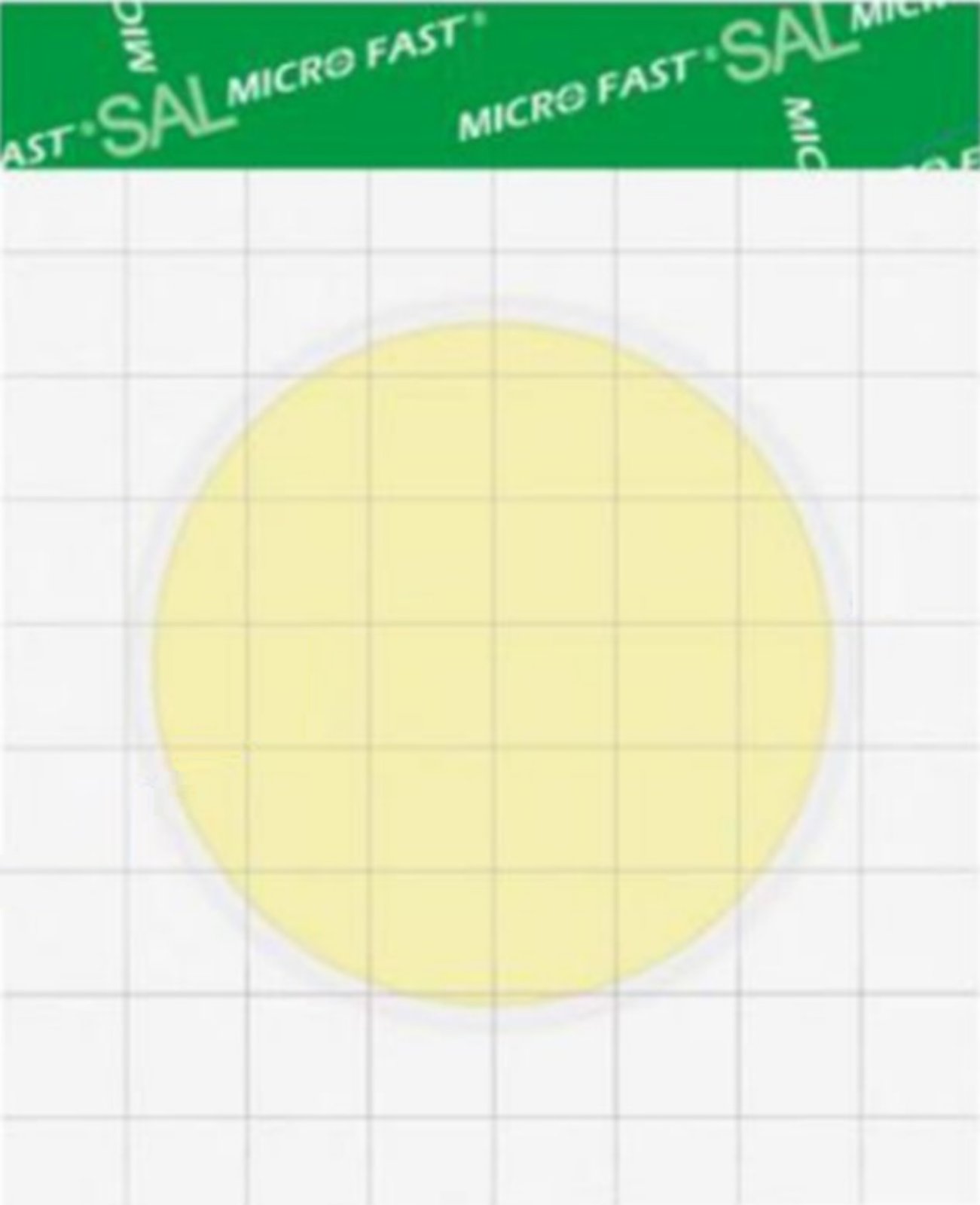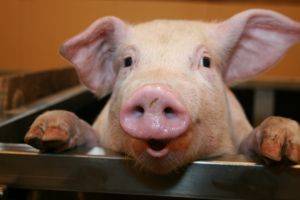Head of a port elevator: Kaliningrad grain is not yet competitive in Russia

 Express-tests PIONER 5 in1 for the determination of thiamphenicol, meloxicam, colistine, trimethoprim, sulfonamides
Express-tests PIONER 5 in1 for the determination of thiamphenicol, meloxicam, colistine, trimethoprim, sulfonamides PIONEER MEIZHENG BIO-TECH (5 in1) JC0871/ Rapid tests for the determination of the residual amount of β-lactams, tetracyclines, chloramphenicol, streptomycins, ceftiofur in milk, whey.
PIONEER MEIZHENG BIO-TECH (5 in1) JC0871/ Rapid tests for the determination of the residual amount of β-lactams, tetracyclines, chloramphenicol, streptomycins, ceftiofur in milk, whey.
Two months in RUSSIA there are quotas for the EXPORT of grain. A month ago, the Russian government introduced for export to the EAEU countries such crops as wheat, meslin, rye, barley and corn. The Kaliningrad region exports about 40% of the grain harvest. Under the new conditions, producers and processors are forced to look for other markets. About how this will affect consumers and what way out of the situation agricultural companies see, RBC Kaliningrad spoke with Elena Zaitseva, General DIRECTOR of Port Elevator JSC.
— Elena Renadovna, why are the restrictions imposed and what do they mean for the Kaliningrad region?
— The goals of such tariff regulation are Russia's food security. That is, against the backdrop of a significant increase in grain prices in world markets, the task was set to stop the growth in prices for grain and for the products of grain consumers. This is a strategic, very important task of market regulation.
However, for the Kaliningrad region, as a region cut off from the main territory of Russia, which always produces more grain than it consumes, that is, it has a grain surplus of about 40%, the issue of selling the leftovers is very important. The exclave position significantly affects the cost of our products, since fertilizers, plant protection products, fuels and lubricants and other goods are imported to us through Lithuania and Belarus, which have set high railway tariffs. Thus, when exported to the territory of the Russian Federation and passing the same "transit barriers", grain will cost even more, which will not ensure its sale.
The only way out for Kaliningrad commodity producers is to export grain, subject to the obligatory satisfaction of the demand of local consumers at below market prices.
(price containment in the domestic market). Moreover, only in the Kaliningrad region in the Baltic Sea there are operating specialized marine grain export terminals: our company Port Elevator JSC and the latest export and production complex of the SODRUGESTVO Group of Companies. At the same time, the imposed duties, which are quoted weekly by the Ministry of Agriculture of the Russian Federation, and quotas have significantly limited exports.
External factors associated with the introduction of EU sanctions against Russia mean a significant restriction of business for the Russian island in the Baltic!
Read on RBC Pro Pro Which of the Russian analogues of IT products is available to businesses today Instructions ProReviving Cold Calls as the Main Sales Technique in a Crisis: 4 Stepswhat prevents CHINA from quickly entering the Russian market Articles Pro IT companies on suitcases.Will support measures help stop their departure Articles Pro How Chinese brands will fill the vacuum in the Russian market ArticlesPro How '90s Asos Became the Most Sudden Failure of the Dot-Com Era Pro Articles An employee wants to work from abroad:why his salary will decrease Instructions Pro How the elections in France will affect the stock market and currency ForecastsThus, in summary, I will say that the implementation of a grain surplus in the Kaliningrad region is influenced by: the geopolitical situation, which does not allow the export of surpluses to the main territory of Russia, internal restrictions on exports (duties and quotas) and international sanctions .
— How is the situation on the international grain market this year?
“There is already a big shortage of grain all over the world. And not only in the north of Africa, where they are usually taken and where there is a very large consumption, but also in Europe.
Ukraine and Russia supplied the lion's share of grain to the world market. Analysts say that the situation in the US is very unimportant, because there is a drought, just like in southern CANADA. So the food shortage situation in the new season will be very serious.
According to the Russian Ministry of Agriculture, at present, the grain supply in Russia exceeds 150%. At the same time, a temporary ban on exports will prevent the overflow of agricultural products, given that the EAEU countries have already made the necessary volumes of purchases in the duty-free regime this season.
- It turns out that against the backdrop of a global shortage, Kaliningrad grain will be in demand?
- Not that word!
- And it will be possible to dictate prices?
— Conditions and prices are dictated by the market, the stock exchange. And now the price of wheat is quite high.
The restrictive measures introduced by the Government of the Russian Federation for the export of Russian grain were supposed to help keep prices on the domestic market. As for world prices, they will be greatly influenced not only by the economy, but also by politics. Because at the moment, from what I hear, I read on the issue of exporting one of the most sought-after products - grain - the decision where exactly to export will be made by the state. Wait and see. But in fact, our grain will be in great demand.
So, restrictions are good. And for manufacturers?
- When introducing restrictions for business in Russia, you always need to take into account many factors influencing the market. The Kaliningrad region is the only foreign territory of Russia with an established structure and objective geopolitical conditions for doing business, including agriculture.
I repeat, the crop production produced in the region is always more than the region consumes. Export to the main territory of the Russian Federation is impossible due to the higher cost and expensive rail transit through Lithuania and Belarus.
The presence of year-round navigation and specialized grain port elevators are the basis for the free export of products manufactured in the Kaliningrad region.
Failure to solve this problem has already led to serious problems with the sale of last year's wheat and corn. Many producers have not yet sold grain, therefore, their obligations to repay loans have not been fulfilled and plans for the maintenance and development of agricultural business have not been implemented.
What do you think can be done in this situation?
- Our Kaliningrad community has repeatedly proposed to separate prices for domestic consumption and prices for sale to foreign consumers.
If someone is worried that we will not be able to control our and foreign buyers, then this is not so. We have known everyone for a long time, everything is registered. And for them, we could keep prices, so as not to provoke an increase in prices for domestic products - feed, bakery products, MEAT, etc. And the rest of the grain, surplus, we ask to be allowed to export in the free export mode. This would be the ideal condition. We keep track of everything perfectly, we have the Chamber of Commerce and Industry and customs, which have a methodology for determining goods produced in the Kaliningrad region. Around the Kaliningrad region - the border! All goods are declared by the customs authorities, without them it is impossible to take anything anywhere. Therefore, the mechanism for providing producers with grain at normal, low prices and the free export of grain produced in the Kaliningrad region,
- It would be a good profit ...
- Yes, if we were given the opportunity to freely export at world high grain prices, then the export earnings received would go to the introduction of new lands into agricultural circulation, land reclamation, and the purchase of new equipment.
This would provide jobs for all grain export stakeholders, including port elevators, save jobs and relieve social tensions in the field of agricultural producers. Given the significant increase in prices for fertilizers, protective equipment, spare parts, fuels and lubricants and other components, the export earnings received in full from the free export of Kaliningrad grain would make it possible to prepare well for the next season. The Kaliningrad Grain Club has repeatedly spoken and written about this. Agricultural producers of the Kaliningrad region are significantly supported by the regional government, but only the Russian government can solve the issue of free export for grain produced in the Kaliningrad region.
Earlier, RBC Kaliningrad reported that Port Elevator JSC, together with transport workers and logisticians, is focused on finding new opportunities to work in a changing economic environment. The possibility of transporting grain to China by rail and sea is being explored.
Read together with it:
- Томские хозяйства завершают уборочнуюПо данным на 28 октября уборка зерновых и зернобобовых культур в Томской области выполнена на площади 143,67 тыс. га, что составляет 99,6% от плана. Намолочено 392,6 тыс. тонн зерна при средней урожайности 27,3 ц/га. Полностью завершили уборку зерновых 9 районов области: Асиновский, Зырянский, Колпашевский, Кривошеинский, Молчановский, Первомайский, Томский, Чаинский, Шегарский. Некоторые хозяйств...
- Конфликт между «Автотехцентром» и «Токаревской птицефабрикой»: иск на 18,7 млн рублей«Автотехцентр» был зарегистрирован в феврале 2018 года и занимается техническим обслуживанием и ремонтом автотранспортных средств. Генеральным директором компании является Антон Аминов. В 2024 году её выручка составила 833 млн рублей, а чистая прибыль — 7,7 млн рублей. Ранее другая тамбовская компания, ООО «Ника», подала иск к «Токаревской птицефабрике» с требованием вернуть задолженность по догов...
- Россельхознадзор провел надзорный контроль за 18 тысячами тонн животноводческой продукции в Кировской областиТакже зарегистрированы 2 партии куриных лапок весом 47,2 тонны, отправившихся на экспорт в Китай. Перевозки проходили в рамках условий регионализации. В регион были ввезены кормовые добавки и корма из нескольких областей, включая Курскую, Калининградскую и Волгоградскую. В свою очередь, из Кировской области было отправлено 36 партий яиц в Коми и Ямало-Ненецкий автономный округ, а также 7 партий об...
- На миллион меньше: Аргентина завершит 2025 год с сокращением поголовья крупного рогатого скота третий год подряд«Зимой (с июня по август) наблюдалась сложная ситуация в животноводстве, характеризующаяся разрозненными колебаниями цен на скот и экономической обстановкой, характеризующейся коррекцией обменного курса, ростом финансовых затрат и наличием больших площадей для выпаса скота с избытком воды», — отмечается в отчете. По частным оценкам и официальным данным, к концу 2......

























































